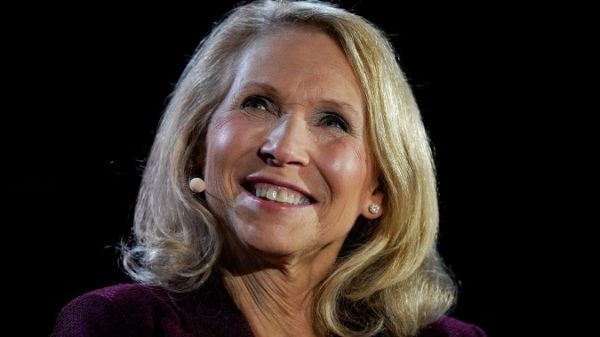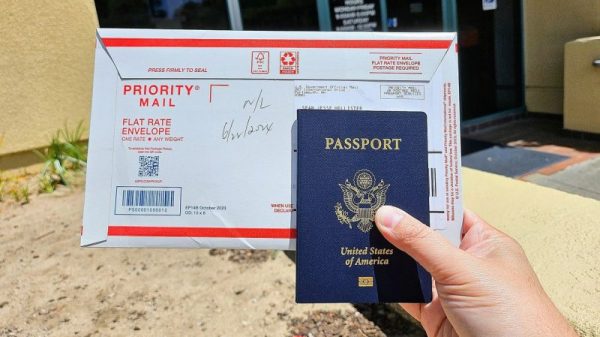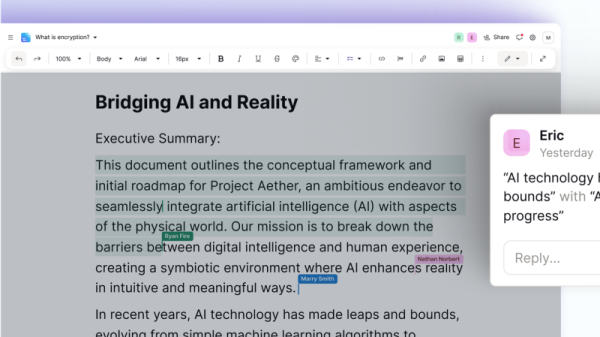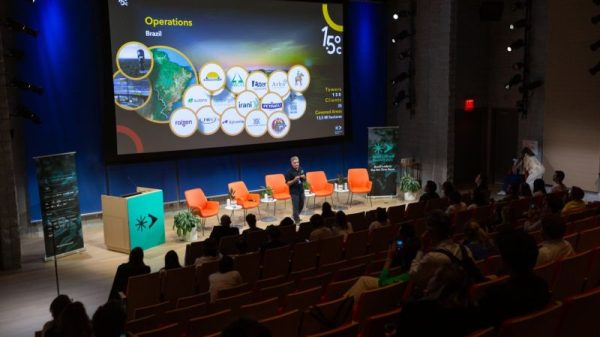The federal prosecutor overseeing the Hunter Biden tax investigation partially addressed allegations of Justice Department wrongdoing on Monday, telling lawmakers that while he discussed with other officials the possibility of filing charges outside of Delaware, where he is based, no one denied him that option.
The letter from Delaware U.S. Attorney David Weiss is the latest salvo in a back and forth that erupted after two IRS agents claimed Justice officials stymied and slow-walked their investigation of the president’s son.
Tensions between the Justice Department, FBI and IRS over how to handle the Hunter Biden investigation came to a head in the past month, as Biden reached a deal with Weiss to plead guilty to two misdemeanor tax charges and admit to having illegally possessed a gun.
Biden is scheduled to plead guilty later this month, under terms that would also dismiss a gun charge against him if he adheres to probation and other conditions for two years, according to people familiar with the details of the plea negotiations who spoke on the condition of anonymity to describe the terms.
Shortly before the plea deal was struck, an IRS supervisory agent named Gary Shapley took his whistleblower complaints to a congressional committee, alleging a series of actions and inactions by Justice Department officials that he said hobbled a more serious tax case against Biden.
Among Shapley’s complaints were that Weiss, at an Oct. 7 meeting, allegedly told the FBI and IRS agents working on the case that he was not the “deciding official on whether charges are filed,” according to a transcript of Shapley’s congressional interview.
Weiss further surprised the agents, Shapley alleged, by saying that U.S. Attorney Matthew Graves, who oversees federal prosecutions in the nation’s capital, would not allow Weiss to charge Biden in D.C. That’s where Biden lived in 2014 and — according to Shapley — committed his most serious tax crimes.
Weiss, a holdover from the Trump administration, allegedly told those at the Oct. 7 meeting that he had known for months that Graves’s office had rejected filing charges against Biden.
Shapley also said Weiss told the group that he had asked the Justice Department to appoint him as a special counsel, which would give him broader independence in the investigation, “and was denied that authority.”
Everyone at the meeting “seemed shell-shocked, and I felt misled by the Delaware United States Attorney’s Office,” Shapley said, according to the transcript of his interview. “At this point, I expressed to United States Attorney Weiss several concerns with how this case had been handled from the beginning. The meeting was very contentious and ended quite awkwardly.”
While it is common for disagreements to flare up between agents and prosecutors, it is very rare for agents to take those complaints to Congress as whistleblowers. Shapley told lawmakers that he came forward because Justice Department officials “provided preferential treatment and unchecked conflicts of interest in an important and high-profile investigation.”
Shapley also said he and the other IRS agents who had been involved in the Biden case were removed in May. One of them — the case agent, or primary investigator in the case — also spoke to the House Ways and Means Committee about his concerns. The case agent’s name has not been made public.
Congressional Republicans have seized on the agents’ allegations as evidence of their long-running claims that the Biden Justice Department has failed to pursue allegations of wrongdoing against the Biden family. Attorney General Merrick Garland has defended the institution, insisting Weiss had full authority to make charging decisions, and said in late June that Weiss never asked him to be made a special counsel.
Weiss’s letter was sent to Sen. Lindsey O. Graham (S.C.), the senior Republican on the Senate Judiciary Committee. The prosecutor does not address what was or wasn’t said at the October meeting with Shapley and others. But he insists he never asked to be appointed as a special counsel — a title that would grant him an extra level of independence from the politically appointed leadership of the Justice Department.
“I have not requested Special Counsel designation,”Weiss wrote. He added that he had “discussions with Department officials” regarding another possible appointment under a different part of Justice Department regulations “which would have allowed me to file charges in a district outside my own without the partnership of the local U.S. Attorney. I was assured that I would be granted this authority if it proved necessary.”
Weiss did not say whether it would have been him or his department superiors who determined if such an appointment was necessary. But he did say those discussions took place months before the October meeting. Weiss wrote that he has “never been denied the authority to bring charges in any jurisdiction.”
Shapley’s lawyers fired back Monday with a written statement, saying the U.S. Attorney’s “story continues to change,” and labeling any involvement of Biden appointees in discussions of the Hunter Biden investigation as problematic.
“As a practical matter, it makes no difference whether Weiss requested special counsel or special attorney authority,” their statement said. “Under no circumstances should ‘the process’ have included the political appointees of the subject’s father, because Congress and the public had been assured it would not — but it did.”
The new Weiss letter follows another, more vaguely worded one he sent more than a week ago to congressional Republicans. In the face of demands for answers and testimony from lawmakers about his handling of the politically sensitive case, Weiss has said he cannot discuss the particulars of the tax investigation. In Monday’s letter, Weiss also said there is an ongoing investigation related to a related area of interest to Republicans, an FBI document alleging possible wrongdoing by the Biden family.
Republicans on the House Judiciary Committee are expected to press FBI Director Christopher A. Wray about the Biden case at a congressional hearing Wednesday, as senior law enforcement officials increasingly find themselves at the center of a public war of words among lawyers for Hunter Biden, lawyers for Shapley, and members of Congress.
Last month, Abbe Lowell, one of Biden’s lawyers, took the unusual step of defending the prosecutors’ handling of his client’s case, and attacking Shapley in a letter. Lowell accused Republicans of misusing congressional investigations to try to smear his client, and suggested federal agents had leaked information to reporters, particularly for a Washington Post story on Oct. 6, 2022 — the day before the contentious meeting described by Shapley — that said agents believed they had a chargeable case against Biden.
Lawyers for Shapley fired back last week, saying Lowell “steps so close to the defamation line that he gets chalk on his shoe” by suggesting that Shapley and the IRS case agent might have gone to Congress to try to cover up their own possible misconduct.
Shapley also signed an affidavit that declares: “I was not the source for the October 6, 2022 Washington Post article, nor have I ever had any contact” with the two reporters who wrote it. Shapley also urged The Post to publicly state that he was not a source for the paper. A Post spokeswoman has said that the paper does not comment on sourcing.
The federal prosecutor overseeing the Hunter Biden tax investigation partially addressed allegations of Justice Department wrongdoing on Monday, telling lawmakers that while he discussed with other officials the possibility of filing charges outside of Delaware, where he is based, no one denied him that option.
The letter from Delaware U.S. Attorney David Weiss is the latest salvo in a back and forth that erupted after two IRS agents claimed Justice officials stymied and slow-walked their investigation of the president’s son.
Tensions between the Justice Department, FBI and IRS over how to handle the Hunter Biden investigation came to a head in the past month, as Biden reached a deal with Weiss to plead guilty to two misdemeanor tax charges and admit to having illegally possessed a gun.
Biden is scheduled to plead guilty later this month, under terms that would also dismiss a gun charge against him if he adheres to probation and other conditions for two years, according to people familiar with the details of the plea negotiations who spoke on the condition of anonymity to describe the terms.
Shortly before the plea deal was struck, an IRS supervisory agent named Gary Shapley took his whistleblower complaints to a congressional committee, alleging a series of actions and inactions by Justice Department officials that he said hobbled a more serious tax case against Biden.
Among Shapley’s complaints were that Weiss, at an Oct. 7 meeting, allegedly told the FBI and IRS agents working on the case that he was not the “deciding official on whether charges are filed,” according to a transcript of Shapley’s congressional interview.
Weiss further surprised the agents, Shapley alleged, by saying that U.S. Attorney Matthew Graves, who oversees federal prosecutions in the nation’s capital, would not allow Weiss to charge Biden in D.C. That’s where Biden lived in 2014 and — according to Shapley — committed his most serious tax crimes.
Weiss, a holdover from the Trump administration, allegedly told those at the Oct. 7 meeting that he had known for months that Graves’s office had rejected filing charges against Biden.
Shapley also said Weiss told the group that he had asked the Justice Department to appoint him as a special counsel, which would give him broader independence in the investigation, “and was denied that authority.”
Everyone at the meeting “seemed shell-shocked, and I felt misled by the Delaware United States Attorney’s Office,” Shapley said, according to the transcript of his interview. “At this point, I expressed to United States Attorney Weiss several concerns with how this case had been handled from the beginning. The meeting was very contentious and ended quite awkwardly.”
While it is common for disagreements to flare up between agents and prosecutors, it is very rare for agents to take those complaints to Congress as whistleblowers. Shapley told lawmakers that he came forward because Justice Department officials “provided preferential treatment and unchecked conflicts of interest in an important and high-profile investigation.”
Shapley also said he and the other IRS agents who had been involved in the Biden case were removed in May. One of them — the case agent, or primary investigator in the case — also spoke to the House Ways and Means Committee about his concerns. The case agent’s name has not been made public.
Congressional Republicans have seized on the agents’ allegations as evidence of their long-running claims that the Biden Justice Department has failed to pursue allegations of wrongdoing against the Biden family. Attorney General Merrick Garland has defended the institution, insisting Weiss had full authority to make charging decisions, and said in late June that Weiss never asked him to be made a special counsel.
Weiss’s letter was sent to Sen. Lindsey O. Graham (S.C.), the senior Republican on the Senate Judiciary Committee. The prosecutor does not address what was or wasn’t said at the October meeting with Shapley and others. But he insists he never asked to be appointed as a special counsel — a title that would grant him an extra level of independence from the politically appointed leadership of the Justice Department.
“I have not requested Special Counsel designation,”Weiss wrote. He added that he had “discussions with Department officials” regarding another possible appointment under a different part of Justice Department regulations “which would have allowed me to file charges in a district outside my own without the partnership of the local U.S. Attorney. I was assured that I would be granted this authority if it proved necessary.”
Weiss did not say whether it would have been him or his department superiors who determined if such an appointment was necessary. But he did say those discussions took place months before the October meeting. Weiss wrote that he has “never been denied the authority to bring charges in any jurisdiction.”
Shapley’s lawyers fired back Monday with a written statement, saying the U.S. Attorney’s “story continues to change,” and labeling any involvement of Biden appointees in discussions of the Hunter Biden investigation as problematic.
“As a practical matter, it makes no difference whether Weiss requested special counsel or special attorney authority,” their statement said. “Under no circumstances should ‘the process’ have included the political appointees of the subject’s father, because Congress and the public had been assured it would not — but it did.”
The new Weiss letter follows another, more vaguely worded one he sent more than a week ago to congressional Republicans. In the face of demands for answers and testimony from lawmakers about his handling of the politically sensitive case, Weiss has said he cannot discuss the particulars of the tax investigation. In Monday’s letter, Weiss also said there is an ongoing investigation related to a related area of interest to Republicans, an FBI document alleging possible wrongdoing by the Biden family.
Republicans on the House Judiciary Committee are expected to press FBI Director Christopher A. Wray about the Biden case at a congressional hearing Wednesday, as senior law enforcement officials increasingly find themselves at the center of a public war of words among lawyers for Hunter Biden, lawyers for Shapley, and members of Congress.
Last month, Abbe Lowell, one of Biden’s lawyers, took the unusual step of defending the prosecutors’ handling of his client’s case, and attacking Shapley in a letter. Lowell accused Republicans of misusing congressional investigations to try to smear his client, and suggested federal agents had leaked information to reporters, particularly for a Washington Post story on Oct. 6, 2022 — the day before the contentious meeting described by Shapley — that said agents believed they had a chargeable case against Biden.
Lawyers for Shapley fired back last week, saying Lowell “steps so close to the defamation line that he gets chalk on his shoe” by suggesting that Shapley and the IRS case agent might have gone to Congress to try to cover up their own possible misconduct.
Shapley also signed an affidavit that declares: “I was not the source for the October 6, 2022 Washington Post article, nor have I ever had any contact” with the two reporters who wrote it. Shapley also urged The Post to publicly state that he was not a source for the paper. A Post spokeswoman has said that the paper does not comment on sourcing.























